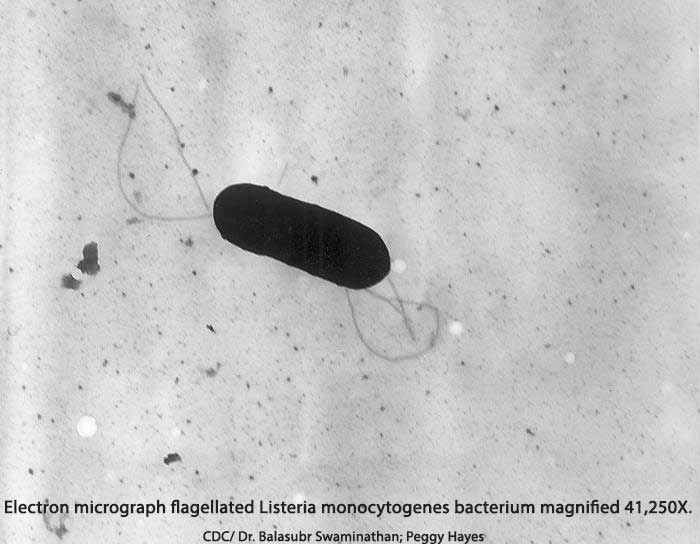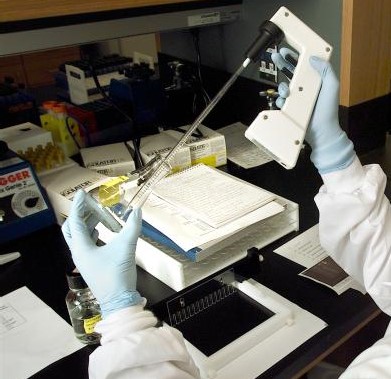Yes, if there is evidence to support your claim, you may be able to sue a grocery store or big-box retailer (Walmart, Costco, Target) for food poisoning. This means you can file a lawsuit seeking compensation to pay your hospital bills, other medical expenses, pain and suffering, lost income, and other damages. You also may have a claim against a food processor or other company that sold the contaminated product that made you sick.
What Do I Do If Food I Bought at a Grocery Store Made Me or a Family Member Sick?
Our law firm is one of the few in the nation that has won numerous personal injury and wrongful death settlements and verdicts for people harmed by eating contaminated food, including a $4.5 million settlement for E. coli and a $6.4 million settlement for listeriosis.

Do You Need Help?
We helped John and Pat find out how John got sick and held those responsible accountable. Our lawyers can help you. Contact them for a free consultation using this form.
What Kind of Food Poisoning do I Have?
Food poisoning can be caused by one or more of the following pathogens:
- Campylobacter
- Clostridium botulinum (causes botulism)
- Cyclospora
- E. coli
- hepatitis A
- Listeria
- Salmonella
- Shigella
These are bacteria and viruses that can cause severe illness and wrongful death.

Contact your local health department.
Counties and large cities have health departments that investigate outbreaks of illness. After you are diagnosed with a specific foodborne illness (discussed above), you should tell your local health department. You can contact our lawyers before you do this if you need help.
The local health department officials will interview you to find out what you ate in the days before becoming symptomatic. If you and others were sickened after eating an edible product purchased from one specific grocery store, health officials will most likely inspect the store and take environmental samples for pathogen testing. The state health department or the CDC may be called in to help.
In most outbreaks, genetic testing is done on bacterial isolates found in your stools and in the environmental samples. to determine the DNA “fingerprint” of the pathogen that made you sick. In most cases, this evidence can be used to help us win your case.

Hire lawyers with experience winning lawsuits against grocery stores.
Hire our lawyers to do an independent investigation and to protect your legal rights. This sounds self-serving, and it is. But you need to do this. We have an incredible amount of experience with these cases and have found evidence not uncovered by a local or federal health official. One reason for this is that we dig into corporate documents looking for evidence of what the company knew and when.
Document the illness.
It is very important that you document how the poisoning is causing harm. Pictures and videos can be used to show the jury the suffering caused by the tainted food. Medical records don’t communicate as well as images.
We will help you with all of this and handle all of the legal matters, and there are many. Legal documents will fly back and forth between us and the attorneys for the retailer. There will be negotiations and most likely formal mediation. If there is not a settlement before the trial, we will present your case before a judge and jury.
Can I Sue a Grocery Store if My Young Child Has Food Poisoning?
Yes, if your child’s food poisoning can be linked to the grocery store, you can sue on your child’s behalf. This money can be used for pain and suffering compensation, hospital bills and other medical expenses, cost of care, and other expenses. The money won in a settlement or jury verdict is generally placed in a trust for the benefit of the child until they are 18 or older.
Young children are at higher risk of a severe complication of an E. coli infection called hemolytic uremic syndrome (HUS). These little ones can suffer kidney failure, seizures, coma, brain damage, and other serious health problems, and HUS has long-term consequences that could require a future kidney transplant. The Pritzker Hageman legal team recently won a $7.5 million jury verdict in a lawsuit filed by parents on behalf of their child.
Outbreaks and Lawsuits
Charcuterie Packages Sold at Costco and Sam’s Club Recalled Due to Salmonella Contamination
A Salmonella outbreak linked to Busetto brand charcuterie platters sold at Sam’s Club and Fratelli Beretta antipasto packages sold at Costco has led to a recall. Consumers who have purchased this product should not eat it.
Salmonella Outbreak Linked to Ground Beef Sold at ShopRite Stores
A multistate Salmonella outbreak has been linked to ground beef sold at ShopRite stores in four states.
Fresh fish and sushi sold at Albertsons, Safeway, and Sprouts stores in Colorado between May 1, 2021 – October 7, 2021
The seafood, produced by Northeast Seafood Products, has been linked to a Salmonella Thompson outbreak that has sickened over 100 people.
Walmart, ALDI, Hy-Vee, Jewel-Osco, Giant Eagle, and ShopRite Garden Salad Cyclospora Outbreak Linked to Fresh Express
The FDA and CDC have linked bagged salads produced by Fresh Express between May and July 2020 with a Cyclospora outbreak that has sickened at least 509 people so far. Our food safety attorneys have filed a lawsuit in this case against the producer and sellers of this tainted salad.
Meijer, Safeway, Sam’s Club, Target Sold Cargill Beef Recalled for E.coli
After being linked to a four-state E. coli outbreak, Cargill ground beef was recalled for E. coli. It was sold at Meijer, Safeway, and Sam’s Club stores nationwide, at Target stores in five states, and at Publix stores in Florida.
Winn Dixie, Sprouts, Savemart Received Ground Beef Later Recalled Due to Salmonella Risk
Winn Dixie, Sprouts, Savemart, Harvey’s, Lucky, Walmart, FoodMaxx, and others received JBS Tolleson ground beef that was later recalled due to the risk of Salmonella poisoning. The October 2018 recall was issued after a Salmonella outbreak. associated with eating JBS ground beef was associated with 57 illnesses in 16 states.
Costco Deli Associated with Salmonella Outbreak
Food from the deli at the Costco in Issaquah, Washington, is associated with a Salmonella I,4,[5], 12:i:- outbreak. Seven people were sickened, one of whom was hospitalized. Outbreak victims reported onset-of-illness dates ranging from August 28, 2017, to July 13, 2018. The food source has not been identified. Some of the many foods sold at the deli at the Costco Wholesale Warehouse in Issaquah included rotisserie chicken, pork ribs, macaroni and cheese, sandwiches, and wraps. Tests on raw poultry and environmental samples collected on August 7, 2018, were negative for Salmonella I,4,[5], 12:i:-. However, all of the people sickened in the outbreak had eaten food from the deli in the days before becoming ill. One was a Costco employee.
Meijer, Safeway, Sam’s Club, Target Got Cargill Beef Recalled for E.coli
Prior to a Cargill ground beef recall on September 19, 2018, the ground beef was distributed to Meijer, Safeway, and Sam’s Club stores nationwide. it was also distributed to Target stores in 5 states: California, Florida, Iowa, Ohio, and Texas. The recalled Cargill ground beef has been linked to 18 illnesses in 4 states.
Publix Linked to Ground Chuck E. coli O26 Outbreak in Florida
An investigation of 18 E. coli O26 illnesses prompted Publix to recall some ground beef that had been distributed to some Florida Publix grocery stores. The people from Florida sickened in the outbreak had illness-onset dates ranging from July 5 to July 25, 2018. Health officials determined the likely source of these illnesses was ground chuck sold at Publix. The supplier of the beef product was Cargill.
Eggs Recalled after Salmonella Illnesses Reported
Prompted by reports of Salmonella food poisoning, on September 6, 2018, Gravel Ridge Farm issued a recall of shell eggs due to possible Salmonella contamination. The recalled eggs were packaged in dozen-egg cartons and 2.5 dozen flats with the UPC 7-06970-38444-6 and “use by” dates from July 25 through October 31, 2018. The eggs were distributed to locations in Alabama, Tennessee, and Georgia, including the following grocery stores: Piggly Wiggly, Warehouse Discount Grocery, and Western Market.
Lawyer Investigates Honey Smacks and Salmonella Lawsuit
The Honey Smacks Salmonella outbreak was announced in June of 2018 by the CDC. By the time the outbreak was over, 135 people in 36 states had been sickened, and 34 of them had been hospitalized, according to the CDC. People got sick from March 3 to August 29, 2018. Health officials collected Kellogg’s Honey Smacks cereal from retailers and outbreak victims’ homes for testing. Laboratory testing found the outbreak strain of Salmonella Mbandaka in a sample from a box of unopened Kellogg’s Honey Smacks cereal that had been collected from a retail location in California. The same strain was found in samples of leftover Kellogg’s Honey Smacks cereal that had been collected from the homes of outbreak victims in Montana, New York, and Utah. Whole Genome Sequencing, genetic testing, showed that Salmonella bacteria isolated from sick people and Salmonella found in Kellogg’s Honey Smacks cereal were closely related genetically. This is evidence that the outbreak was caused by contaminated Kellogg’s Honey Smacks.
Hy-Vee Salad Recall Due to Salmonella Risk; Lawyers Investigating Outbreak in IA, MN, NE, and SD
A Salmonella outbreak has been linked to eating Hy-Vee Spring Pasta Salad. Our Salmonella lawyers are representing several people sickened in Iowa, Minnesota, Nebraska, and South Dakota. In response to this outbreak Hy-Vee issued a recall of Hy-Vee Spring Pasta Salads in both 1 pound (16 oz.) and 3 pound (48 oz.) containers produced between June 1, 2018, and July 13, 2018, and available from the deli service case.
Lawsuit Filed for Salmonella from Melons Purchased at Walmart
On June 12, 2018, our law firm filed a lawsuit on behalf of a 73-year-old Ohio woman who was sickened in the Salmonella outbreak linked to pre-cut melon produced at Caito Foods, LLC in Indianapolis. The melon product was purchased at a Walmart store in Findlay, Ohio.
Cyclospora Outbreak Linked to Del Monte Vegetable Trays Sold at Kwik Trip
Pritzker Hageman attorneys have filed the first Cyclospora lawsuit against Del Monte Fresh Produce N.A., Inc. on behalf of a person sickened in the 2018 outbreak in Wisconsin and Minnesota linked to eating vegetable trays produced by Del Monte and sold at Kwik Trip locations in both states. Our team is representing several people and can be contacted for a free consultation. Severe diarrhea from a Cyclospora infection, called cyclosporiasis, can last as long as 70 days, and people sickened may not be able to work for this period of time or longer.
Fareway Chicken Salad Linked to Salmonella Outbreak
Our Salmonella attorneys filed lawsuits in Iowa, Illinois, and other states for people sickened in this 2018 outbreak from January 8 to March 20. We are representing over 60 people some of whom suffered life-threatening illnesses. Below are some of our articles:
The outbreak sickened 265 people in eight states: Illinois (10); Indiana (1); Iowa (240); Minnesota (4); Mississippi (1); Nebraska (5); South Dakota (3); and Wisconsin (1). The salad was made by Triple T Specialty Meats and packaged and sold by certain Fareway grocery stores.
Vulto Creamery Raw Milk Cheese Listeria Outbreak
Our lawyers represented a person sickened in a 2017 outbreak linked to raw milk cheese made by Vulto Creamery. Our client was one of 6 people sickened in the outbreak. States involved include Connecticut (1), Florida (1), New York (3), and Vermont (1). Two people, from Connecticut and Vermont, died. Vulto Creamery issued a recall of Ouleout, Miranda, Heinennellie, and Willowemoc soft, wash-rind raw milk cheeses.
E. coli O121 Associated with Gold Medal Flour
General Mills, based in Golden Valley, Minnesota, issued a recall of about 10 million pounds of flour sold under the Gold Medal, Wondra, and Signature Kitchens brands. The recall was prompted by a multistate outbreak of E. coli O121 that has sickened at least 38 people in 20 states. The range of onset of illness was December 21, 2015, to June 26, 2016.
Lawsuit against Costco for E. coli from Chicken Salad
In 2015, our law firm filed a lawsuit against Costco Wholesale Corporation and Taylor Fresh Foods, Inc. (“Taylor Farms”) for a client who got E. coli poisoning after eating “Costco Rotisserie Chicken Salad” made with a celery and onion blend supplied to Costco by Taylor Farms.
In 2012, an E. coli O157:H7 outbreak linked to Wegmans brand Organic Spinach and Spring Mix salad and bagged salad sold at other stores sickened 33 people in five states. Thirteen people were hospitalized. Cases were reported from Connecticut (2), Massachusetts (2), New York (22), Pennsylvania (1), and Virginia (1). Illness onset dates for these victims range from October 18, 2012, to November 3, 2012.